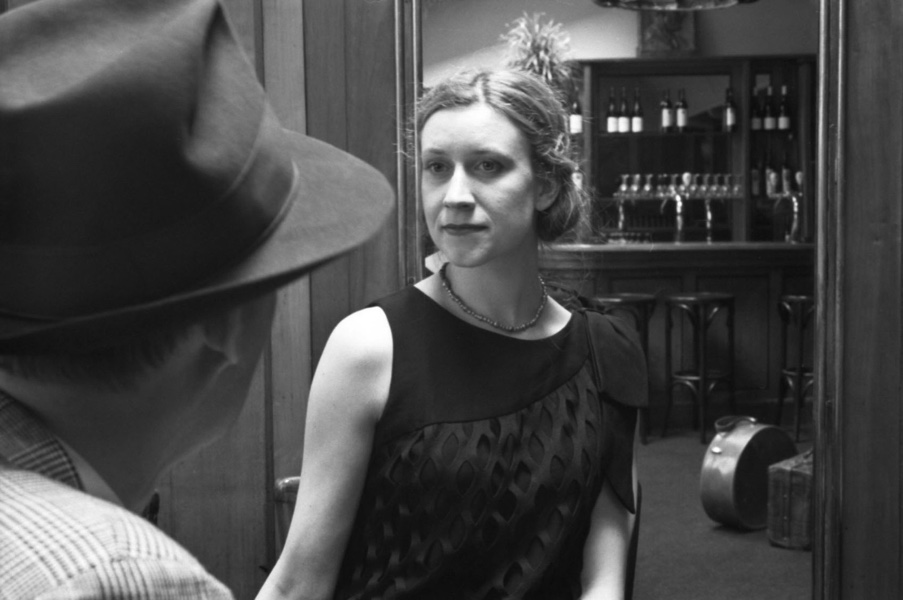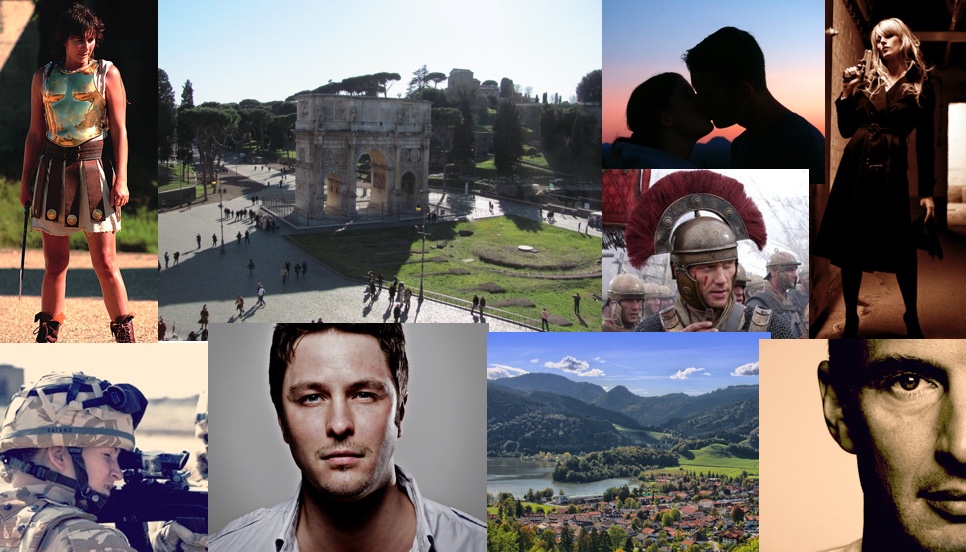 Strictly, a literary trope is a rhetorical or figurative device, via word, phrase or an image, for artistic effect. Today, it’s also come to be used for describing commonly recurring literary and rhetorical devices and motifs in creative works.
Strictly, a literary trope is a rhetorical or figurative device, via word, phrase or an image, for artistic effect. Today, it’s also come to be used for describing commonly recurring literary and rhetorical devices and motifs in creative works.
Right, now we’ve got the formal stuff out of the way, let’s look at how it applies to today’s fiction.
A trope is used as a storytelling device or convention, a shortcut for describing situations the storyteller can reasonably assume the audience will recognise. But tropes are not the same thing as clichés. They may be brand new or seem trite and hackneyed; they may be thousands of years old but seem fresh and new. They are not bad, they are not good; tropes are tools that the creator of a work of art uses to express their ideas to the audience. It’s pretty much impossible to create a story without tropes.
In essence, a trope works as a connector and an anchor. It reaches out to us to provide us with anticipation yet gives us reassurance that events will take a certain course. Even ‘twists and turns’ is a trope, in that we are braced to expect something unexpected.
Some of the ones we see daily on our screens are: girl meets/misses boy, character gets an unexpected inheritance, character walks through unlit parks/railway stations/streets, the protagonist is kicked in the teeth at every turn, the character finds late romance, a queen surrounded by enemies that her husband ignores, the idealist comes a cropper, a character’s life shattered by spouse’s hidden criminal life, ad infinitum! and then there are tropes specific to one type of story or genre.
So let me demonstrate specific tropes through the genre that I work in – alternative history (and notes where I’ve used a few of them)
Alternate timeline: A different series of events compared to our original timeline (e.g. William of Normandy not succeeding in 1066)
Atlantis: A legendary ancient island civilization which was said to have been destroyed and sank into the ocean. It has appeared in many different works of fiction as a place which really existed, either as a bunch of submerged ancient ruins or somehow still thriving and inhabited.
Balkanisation : A real country gets divided into smaller countries following a major war or other great political upheaval (As Germany was in the Roma Novan timeline after the Great War of 1925-35 – see AURELIA)
Butterfly of doom: Changes to the historical past result in very wildly extreme or unpredictable outcomes for the future.
Did Anastasia survive?: What if the Grand Duchess Anastasia (the youngest daughter of Tsar Nicholas II of Russia) had somehow managed to escape the executions of the Romanov dynasty during the Russian Revolution?
America is still a colony: The British colonies in North America never became independent, as The American Revolution was either thwarted or averted altogether. (It was until 1865 – see the references to this in INCEPTIO.)
Double-blind what-if: People living in an alternate timeline ponder how different things would be if history had turned out more like it did in our real timeline.
Fictional Earth: An alternate counterpart of our real planet, which features (radically) different political and/or physical geography; up to and including completely unrecognizable continents and oceans.
Fictional country: A made-up sovereign nation-state which has been inserted into an otherwise nearly identical map of the real world. (Ha! Roma Nova, of course. But the existence of such a country would inevitably have an effect on the rest of the world.)
For want of a nail: If only a small thing had been there/a small deed done/a conversation or message has occurred
In spite of a nail: Even if the above had happened, everything would still have gone pear-shaped
Giving radio to the Romans: A time-traveler from the future decides to introduce modern technology to the past. (Oh, the temptation! But this is more time-travel than alternative history… Modern Romans, i.e. Roma Novans, have used their engineering and technological instincts to be ahead of the edge in the 21st century.)
Napoleon Bonaparte survived (Referenced in INCEPTIO, NEXUS and AURELIA)
Nazi victory: Nazi Germany wins the Second World War II
Point of divergence: The significant date in an alternate timeline at which it stops resembling real history. (Crucial theory behind alternative history. Theodosius’s Edicts against pagans in AD 395 led to the foundation of Roma Nova)
The lost colony of Roanoke: What caused the abandonment of Roanoke, a short-lived English settlement in what’s now present-day North Carolina during the late 16th century?
Sliding scale of alternate history plausibility: Just how possible or realistic is this alternate timeline? (Hot topic! I blogged about this.)
What If?: The most common way to start a question asking about how history could have gone differently. (A question behind everything. Karen asks this early in INCEPTIO)
Are tropes any use?
Tropes can help stimulate ideas for fiction, or even just scenes, layers or background in any creative work. Authors of mysteries, thrillers, historical fiction and romance often use them, sometimes unwittingly. If used heavily or clumsily, tropes can make stories too predictable and induce disappointment in a reader. We all dislike a film or book that does this and ‘predictable’ can be a strong insult in these cases. Of course, we expect a romance to end in a ‘happy ever after’ or at least a ‘happy for now’ and we hope the cop/agent will catch the bad guy/girl in a crime thriller, but we all like something interesting and thoughtful along the way that will connect with the reader. Tropes can help us in this.
And for the creator of fiction, be it on the screen or page, subverting a trope e.g. introducing 21st century women Praetorians, can add an even further dimension to the story…
Writing challenges so far:
Day 25 & 26: Favourite books as child and adult
Day 24: What to write next
Day 23: What did you write last?
Day 22: What’s your current word count?
Day 21: My preferred genre
Day 20: Characters’ favourite food (and drink!)
Day 19: Characters’ pastimes
Day 18: Characters’ pet peeves(!)
Days 16 & 17: Favourite outfits (combined)
Day 15: The many-hatted author
Day 14: Show your workplace
Day 13: A funny family story. Or not
Day 12: Early bird or night owl?
Day 11: Favourite writing snacks/chocolate porn
Day 10: Post an old picture of yourself
Day 9: Post 5 random facts about you
Day 8: What’s your writing process?
Day 7: Introduce your ‘author friend’
Day 6: How the writing all began
Day 5: What inspired the book I’m working on
Day 4: The setting for the new Roma Nova book
Day 3: Introducing the main characters Julia and Apulius
Day 2: Introduce your work in progress
Day 1: Starting with revealing information
Updated November 2021: Alison Morton is the author of Roma Nova thrillers – INCEPTIO, CARINA (novella), PERFIDITAS, SUCCESSIO, AURELIA, NEXUS (novella), INSURRECTIO and RETALIO, and ROMA NOVA EXTRA, a collection of short stories. Audiobooks are available for four of the series. Double Identity, a contemporary conspiracy, starts a new series of thrillers. Double Pursuit, the sequel, is now out!
Download ‘Welcome to Alison Morton’s Thriller Worlds’, a FREE eBook, as a thank you gift when you sign up to Alison’s monthly email newsletter. You’ll also be among the first to know about news and book progress before everybody else, and take part in giveaways.














Leave a Reply